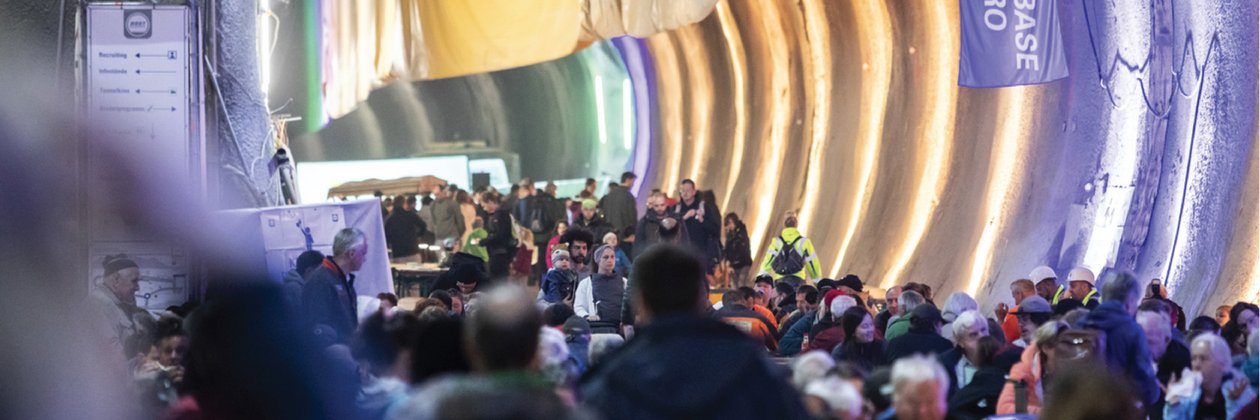The Supervisory Board of BBT SE recently approved this recalculated amount for the BBT infrastructure project.
The breakdown of the estimated total costs of the project is as follows:
- Construction costs are estimated at 8.54 billion EUR. This amount includes the costs for railway outfitting (price 01/01/2023)
- Risk provision is estimated at 1.092 billion EUR
- Preliminary monetary adjustment, meaning the probable inflation applicable to future costs, is currently estimated at 903 million EUR
The adjustment of the original total cost estimate of 9.6 billion EUR according to the Austrian calculation method and 8.8 billion EUR according to the Italian calculation method is mainly due to inflation trends (e.g. price increases in the energy sector and cost inflation of building materials).The present total cost estimate was calculated on the basis of a joint (Austrian-Italian) inflation rate specifically for the BBT project; the current amount is therefore the product of a single, joint cost estimate.
Project financing
After approval of the cost forecast, the next step for BBT SE, the project company, was to apply for the necessary funding from the respective national agencies. In Italy, the first steps were taken to obtain a new CIPESS decision* (Comitato Interministeriale per la Programmazione Economica e lo Sviluppo Sostenibile - Inter-Ministry Committee for Economic Planning and Sustainable Development). In Austria, the new data have already been transmitted to ÖBB, which will use them in the preparation of the new framework plan **.
EU funding continues
The European Commission's funding agencies have been involved in the project and its implementation from the beginning and have recently reiterated their strategic and financial support until completion of the infrastructure project.
To cover the costs already incurred, Italy and Austria will receive co-financing from the European Union of 50% for planning and exploration and 40% for construction work.So far, the EU has pledged a total of about 1.6 billion EUR in co-financing.
As part of the new CEF 2021-2027 programme, BBT SE is participating in a "Call for proposals" for European co-financing in order to obtain co-financing for costs as of 01.07.2023. The results of the Call are expected in summer 2023.
* CIPESS: The Interministerial Committee for Economic Planning and Sustainable Development (CIPES) is a body composed of several ministers which, although subordinate to the Council of Ministers, has a crucial role in Italian economic policy. Its tasks include the coordination of national economic planning and policy, as well as coordination with EU policy. In practice, this means that a whole range of investments, plans and strategic documents have to be approved by this body before they are implemented. These include, for example:
- the allocation of funding for projects in the strategic infrastructure programme;
- the allocation of funds for certain public works;
** The framework plan of the Austrian Federal Railways (ÖBB) is the federal planning and financing instrument for investments in the ÖBB-Infrastruktur AG network. The legal basis for the plan is § 42 of the Bundesbahngesetz (Federal Railways Act).
The ÖBB framework plan is a list of the planned projects and the investment amounts scheduled for implementation within the respective 6-year period. Furthermore, the framework plan also includes the expenses foreseen over the same period for the maintenance of the rail network. Together, these form the substantive basis for the BMK's grants to ÖBB-Infrastruktur AG, for which subsequent grant agreements are formalised. According to the Bundesbahngesetz, the framework plan is to be extended by one year each year, with an adjustment to the new period.

